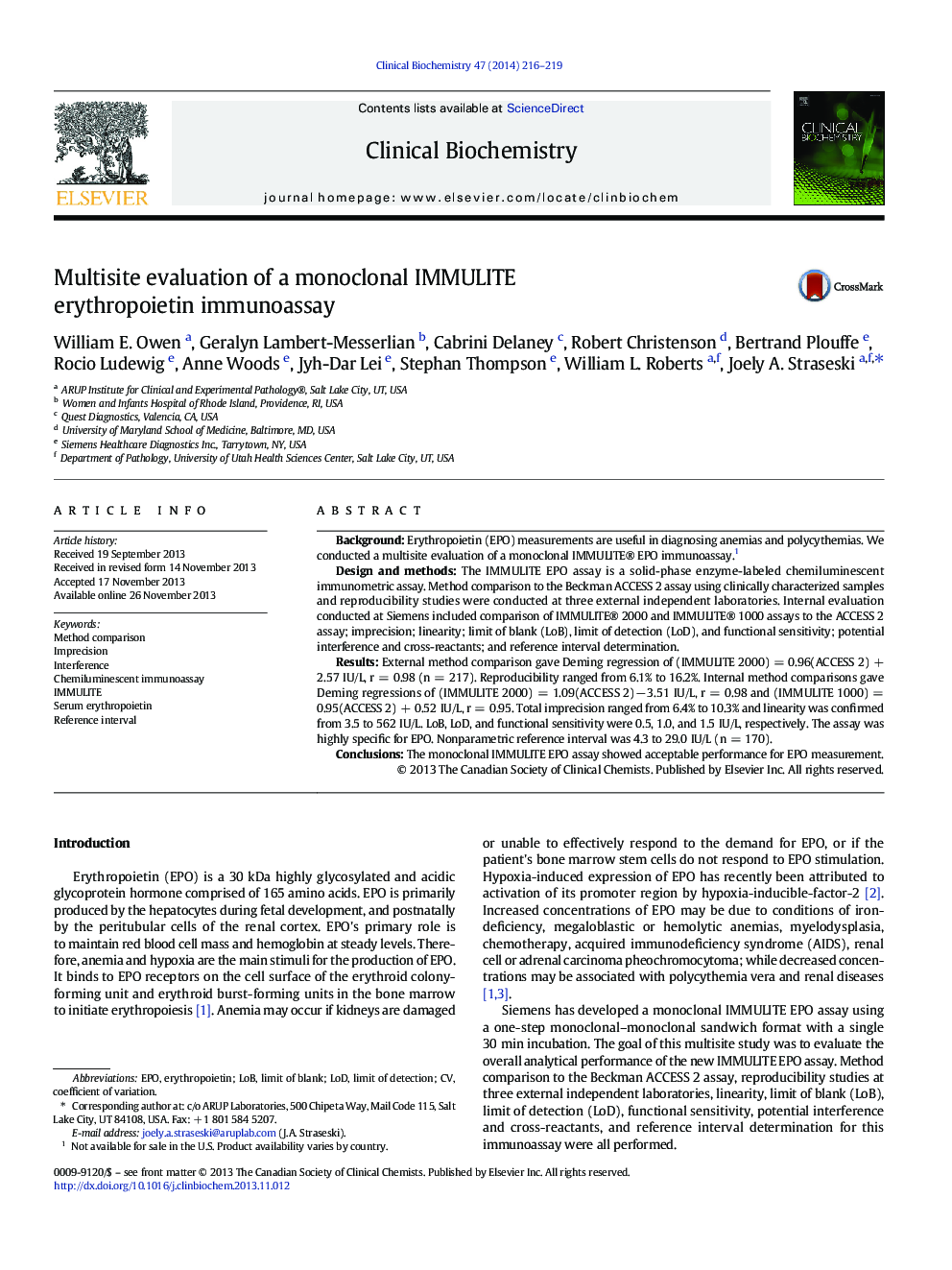| Article ID | Journal | Published Year | Pages | File Type |
|---|---|---|---|---|
| 1968993 | Clinical Biochemistry | 2014 | 4 Pages |
•Erythropoietin (EPO) is useful in diagnosing anemias and polycythemias.•A multisite evaluation of a monoclonal IMMULITE EPO assay was performed.•Assay was comparable to Access 2 method using many relevant disease state samples.•Reference intervals were established in healthy individuals with normal hematocrits.•Assay had good reproducibility, sensitivity, and linearity over wide dynamic range.
BackgroundErythropoietin (EPO) measurements are useful in diagnosing anemias and polycythemias. We conducted a multisite evaluation of a monoclonal IMMULITE® EPO immunoassay.1Design and methodsThe IMMULITE EPO assay is a solid-phase enzyme-labeled chemiluminescent immunometric assay. Method comparison to the Beckman ACCESS 2 assay using clinically characterized samples and reproducibility studies were conducted at three external independent laboratories. Internal evaluation conducted at Siemens included comparison of IMMULITE® 2000 and IMMULITE® 1000 assays to the ACCESS 2 assay; imprecision; linearity; limit of blank (LoB), limit of detection (LoD), and functional sensitivity; potential interference and cross-reactants; and reference interval determination.ResultsExternal method comparison gave Deming regression of (IMMULITE 2000) = 0.96(ACCESS 2) + 2.57 IU/L, r = 0.98 (n = 217). Reproducibility ranged from 6.1% to 16.2%. Internal method comparisons gave Deming regressions of (IMMULITE 2000) = 1.09(ACCESS 2)− 3.51 IU/L, r = 0.98 and (IMMULITE 1000) = 0.95(ACCESS 2) + 0.52 IU/L, r = 0.95. Total imprecision ranged from 6.4% to 10.3% and linearity was confirmed from 3.5 to 562 IU/L. LoB, LoD, and functional sensitivity were 0.5, 1.0, and 1.5 IU/L, respectively. The assay was highly specific for EPO. Nonparametric reference interval was 4.3 to 29.0 IU/L (n = 170).ConclusionsThe monoclonal IMMULITE EPO assay showed acceptable performance for EPO measurement.
